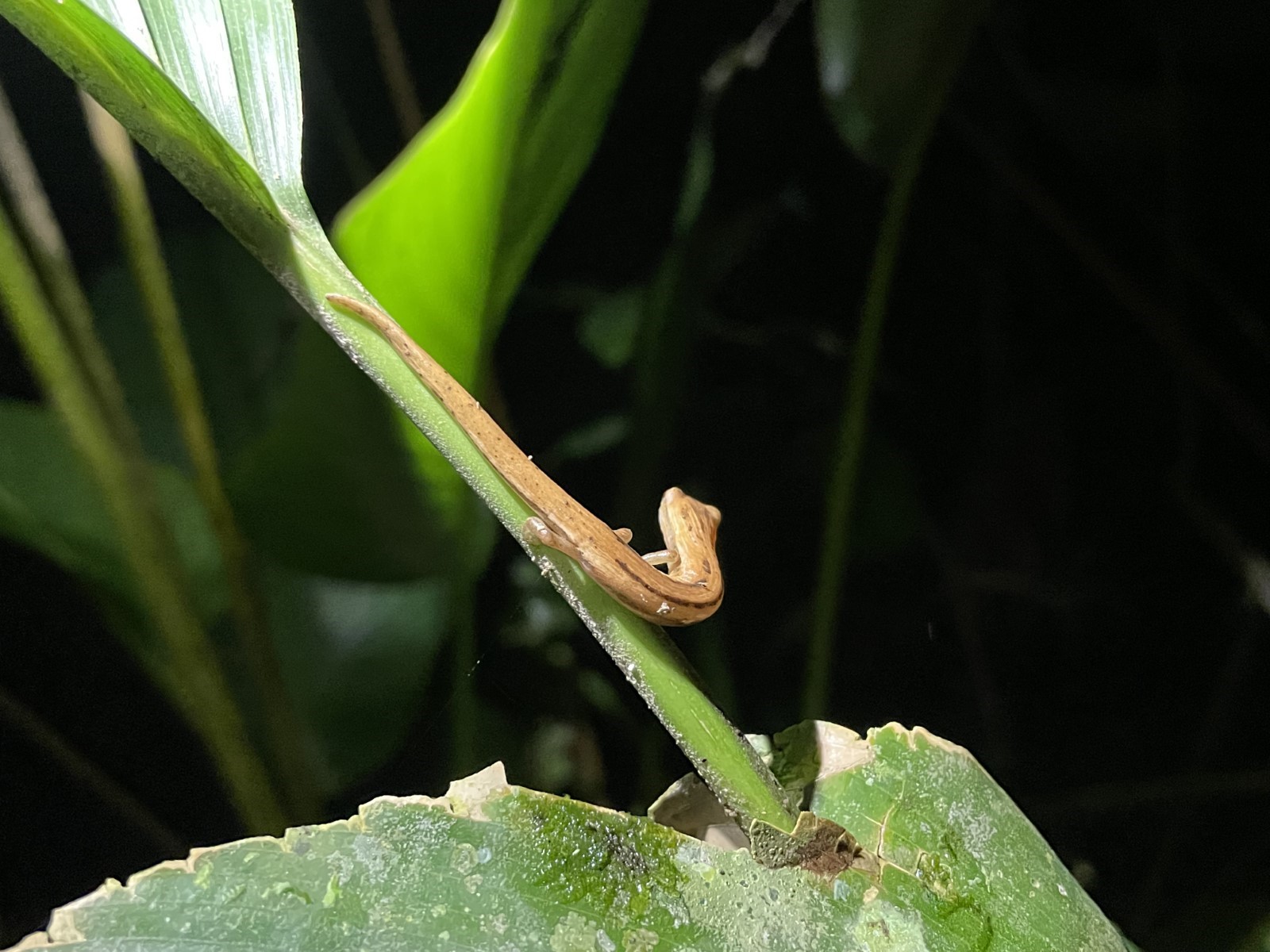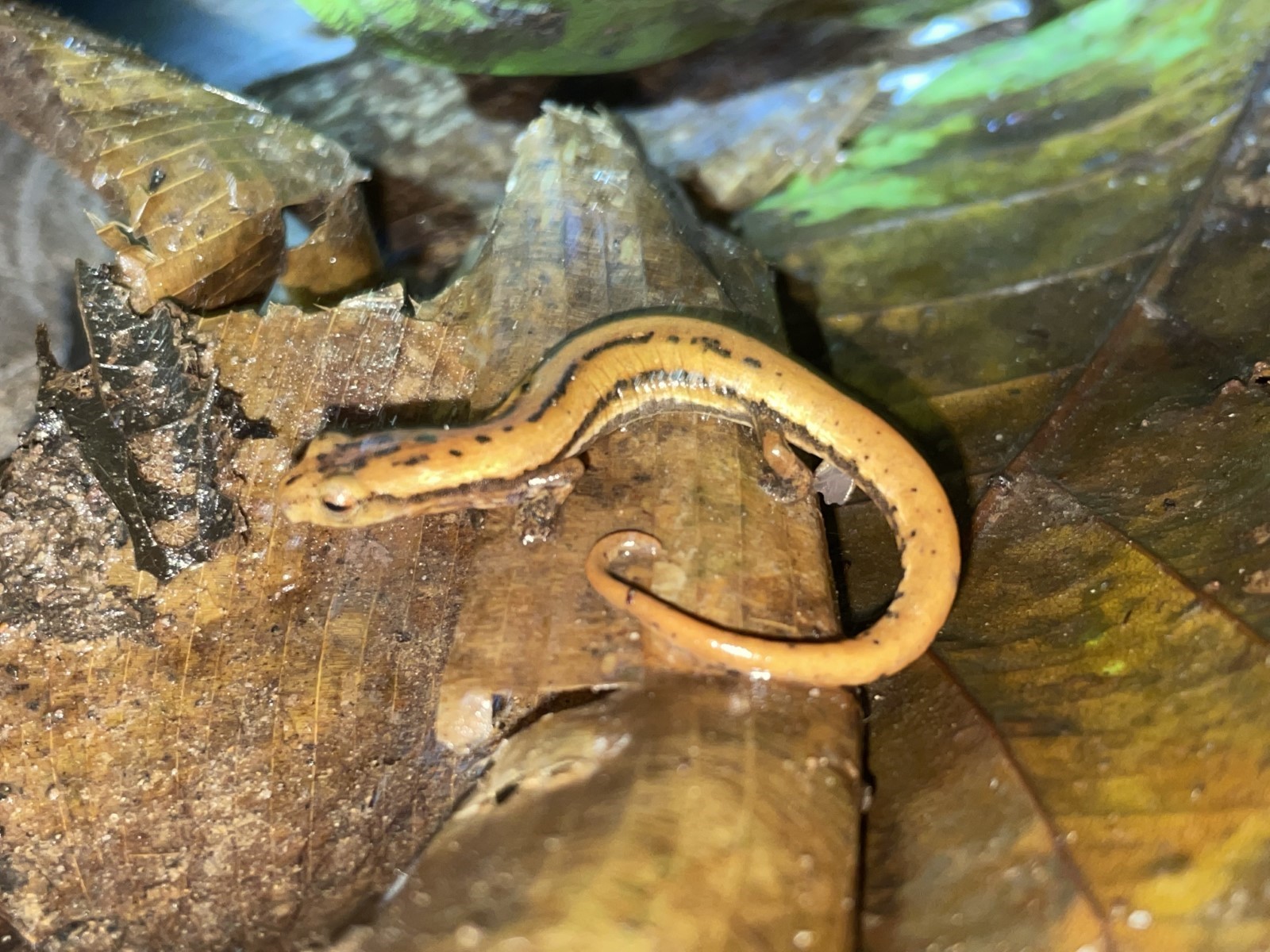posted on January 26, 2025 15:15

In a discovery that has sparked hope for the conservation of endangered species, the Bolitoglossa striatula, commonly known as the Cukra Mushroom Tongue Salamander, has been documented once again in southern Moskitia, Honduras, after nine years without official records.

 Photos by Manfredo Turcios. The Bolitoglossa striatula, also known as the Mushroom Tongue Salamander, is listed on the Honduran Red List.
Photos by Manfredo Turcios. The Bolitoglossa striatula, also known as the Mushroom Tongue Salamander, is listed on the Honduran Red List.
The Miskitu indigenous community has played a crucial role in protecting this vulnerable species. According to their tradition, locally known as "luksay" or "kuhpa lila," salamanders have been used for generations to predict pregnancies and the gender of babies, granting them a respected cultural status.
The recent record was made possible through the collaborative efforts of the Wildlife Conservation Society (WCS), the Honduran Institute for Forest Conservation (ICF), and the Mavita Community Council, who lead monitoring and conservation efforts in the area. During a herpetological study conducted in October 2024, adult and juvenile specimens of the species were found in a tropical rainforest near the Ibantara River, about 50 cm above the ground on a tree belonging to the Arecaceae family.
Moskitia, a biodiversity-rich region, also faces threats such as poaching, illegal logging, and wildlife trafficking. The Scarlet Macaw (Ara macao), Honduras' national bird, is one of the species protected by local communities, which actively patrol to prevent the illegal extraction of its chicks, sold in the international market.
These community-led actions have strengthened environmental responsibility among the residents of Mavita, who, with technical and financial support, are contributing to the conservation of iconic species such as the Scarlet Macaw and Bolitoglossa striatula.
This discovery highlights how indigenous traditions and community commitment remain fundamental pillars in conserving Honduras' natural wealth.
For more information on this finding, see the article titled: “Renewed Hope: Indigenous Knowledge and Practices Protect a Vulnerable Salamander in Southern Moskitia, Honduras,” authored by the WCS team, ICF, and the Mavita community: Manfredo A. Turcios-Casco, Edgard Scott, Bel Vásquez, David Lacoth, Tomás Manzanares, and Bianca P. Padilla.